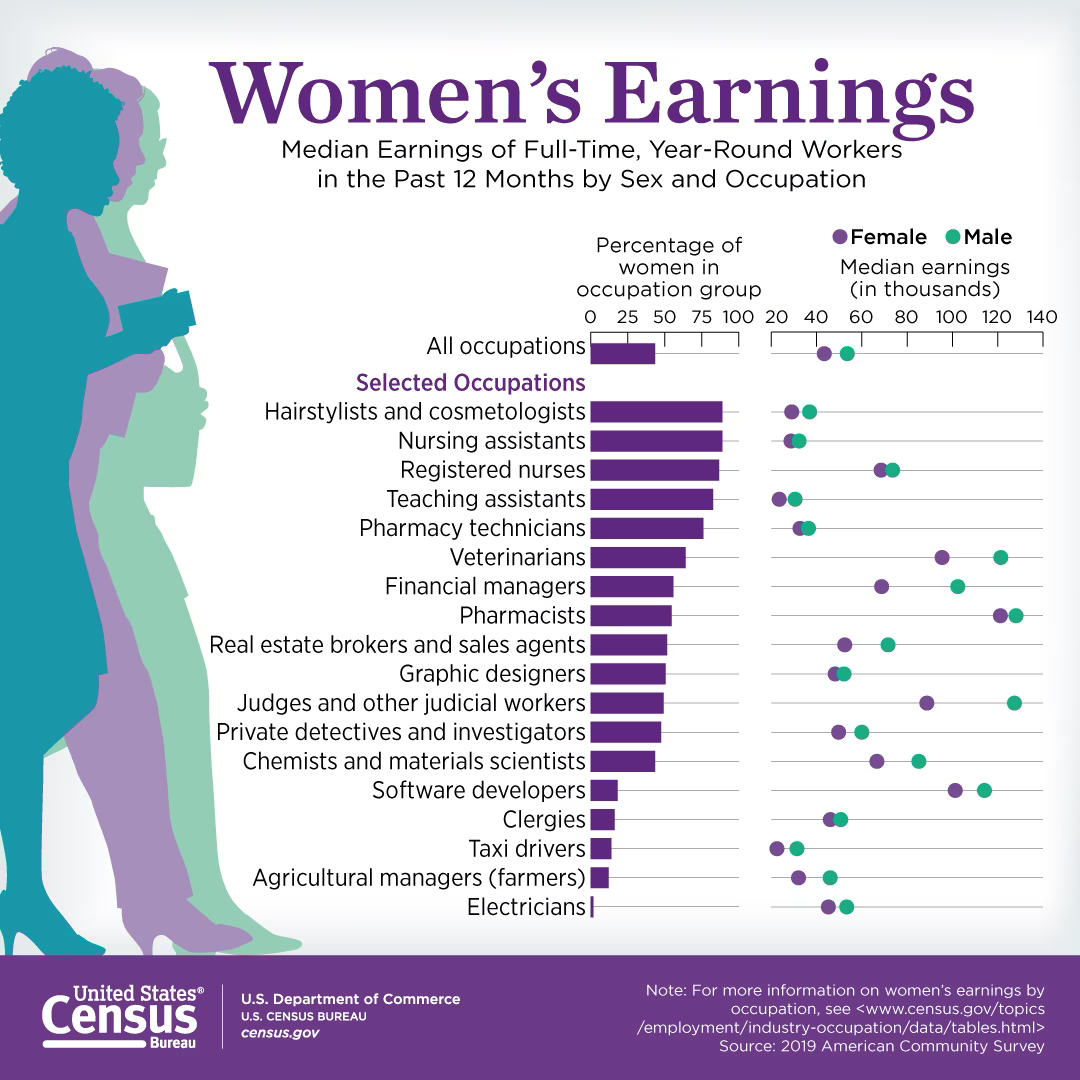Equal Pay Day 2023 and the Equal Pay Act
 It took two and a half months, but women have finally caught up to last year.
It took two and a half months, but women have finally caught up to last year.
March 14, 2023 is this year’s Equal Pay Day. It symbolizes how far into the next year women must work to make as much as men made during the previous one.
Although President John F. Kennedy signed The Equal Pay Act 60 years ago, women still make less than men doing the same job. A US Census Bureau study found that in 2020 women were paid an average of 83 cents per dollar of men’s pay.[1]
In 2009, President Barack Obama signed the Lilly Ledbetter Fair Pay Act. It requires employers to renew their efforts to ensure equal pay. They also must keep records needed to prove that pay decisions are fair. Yet, more than a decade later, women still aren’t paid the same as men.
The Equal Pay Act says:
No employer … shall discriminate, within any establishment in which such employees are employed, between employees on the basis of sex by paying wages to employees in such establishment at a rate less than the rate at which he pays wages to employees of the opposite sex in such establishment for equal work on jobs the performance of which requires equal skill, effort, and responsibility, and which are performed under similar working conditions, except where such payment is made pursuant to (i) a seniority system; (ii) a merit system; (iii) a system which measures earnings by quantity or quality of production; or (iv) a differential based on any other factor other than sex.
What does the Equal Pay Act mean?
Simply, that employers must pay men and women equally for equal work.
“Pay” is not just salary, but all forms of compensation. This can include overtime, bonuses, profit sharing options, stock options, life and health insurance benefits, travel reimbursements, and vacation and holiday pay.
To establish a claim under the Equal Pay Act, an employee must show that co-workers of different genders are paid differently for performing substantially equal work in the same establishment and under similar working conditions.
Substantially equal work does not require identical job titles. Instead, it is interpreted as work requiring substantially equal levels of skill, effort, and responsibility. Whether the employer initially engaged in pay discrimination based on sex does not matter.
Different pay is permitted when it is based a seniority system, a merit system, a system that measures earnings by quantity or quality of production, or on a factor other than sex.
How do I file an Equal Pay Act claim?
Employees filing an Equal Pay Act claim can but are not required to file EEOC claims beforehand. Claims for violations of the Equal Pay Act may be filed directly to court.
The time limit for filing an equal pay claim is within two years of the alleged unlawful compensation practice or, in the case of a willful violation, three years, There also is the possibility of claims under other state and federal laws such at Title VII of the Civil Rights Act.
If you believe you have been subjected to pay discrimination, the experienced employment attorneys at Burnette Shutt & McDaniel may be able to help. We represent clients in a range of other employment law issues, too, including contracts and noncomplete agreements, wage disputes, wrongful termination and race discrimination. We also handle matters before the Equal Employment Opportunity Commission and the South Carolina Human Affairs Commission.
Call us at 803.850.0912 or visit burnetteshutt.law to schedule an appointment.
Information or interaction on this page should not be construed as establishing a client-attorney relationship or as legal advice. For advice about your specific situation, please consult one of our attorneys.
[1] U.S. Census Bureau, Current Population Survey, 2020 and 2021 Annual Social and Economic Supplements (CPS ASEC).

